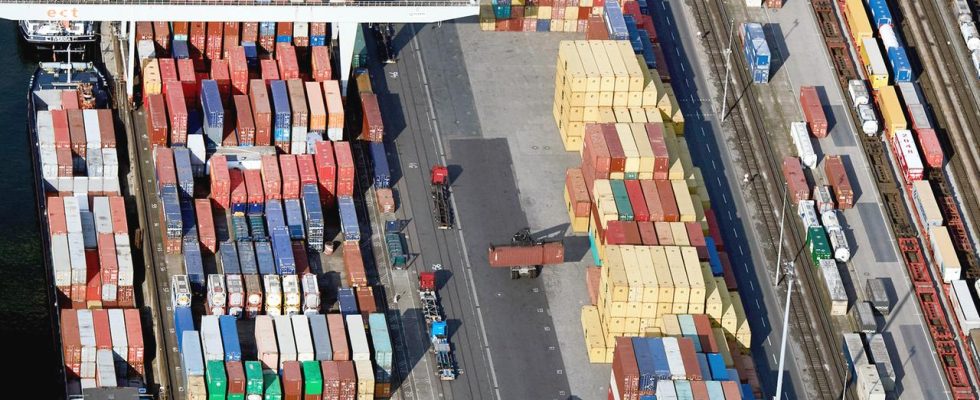In Germany, there is an increasing critical view of domestic investments by Chinese companies. In the past, cities like Duisburg had high hopes for their partner China. Are you changing your strategy now?
The new Silk Road – it was long considered a prestige project of the Port of Duisburg. Even the Chinese President was a guest at the inauguration of the 10,000-kilometer railway line. 30 freight trains with containers from China arrive here every week.
But if you ask today’s duisport boss, Markus Bangen, about business in China, there is no trace of euphoria. The containers that come in from China by rail make up a low single-digit percentage of the total volume of goods handled, he explains. In the past, marketing has definitely overshot the mark here. “We are becoming real and sober when dealing with China,” explains Bangen. “Other parts of the world, like the United States, may have seen this a little longer. We have some catching up to do there.”
Cosco exited terminal stake
At first it seemed as if the ties with China would become closer in the port. The Chinese state shipping company Cosco held a 30 percent stake in the operating company for the construction of a huge new container terminal. But then Cosco left the prestige project completely surprisingly.
Silence has been agreed about the deeper reasons, says duisport boss Bangen. He can only say this much: the rules and rules of the game in the Port of Duisburg are determined by Duisburger Hafen AG. “And if the rules of the game are not followed, we have provided for consequences in contracts. And that came into play here.” This is a visible sign that there are no dependencies in the Port of Duisburg. No one, not even China.
Concerns about the critical infrastructure
Since Germany’s own dependence on Russian gas has fallen on its feet, people have become more cautious here, also towards China, observes Jürgen Matthes from the German Economic Institute. Not all deals with China are risky. “But the question you have to ask yourself today is: Where are the critical dependencies that make us vulnerable to blackmail in the event of a conflict?”
In addition to the high level of dependency on individual imported products such as raw materials, Matthes also sees risks in the critical infrastructure: “We are less at the port of Hamburg or Duisburg and much more at Huawei and the expansion of the German 5G network.” It cannot be ruled out that the Chinese state could gain access to the German network via Huawei, for example to switch it off or use it for espionage purposes.
From partner to rival
In the eyes of the German government, China is now more of a rival than a partner, observes Rolf Langhammer, who researches at the Kiel Institute for the World Economy. However, dependency cannot be reduced overnight. Especially in the medical industry and in the area of IT products, Germany is very dependent on raw materials and products from China. “Companies now have to consider how they can save raw materials, diversify sources of supply and bear higher costs,” says Langhammer.
More than 100 Chinese companies have settled in Duisburg in recent years. Nevertheless, the city’s China representative, Markus Teuber, remains relaxed, also in view of the sharper tones on the political stage. “Our experience here has been unreservedly positive. Small and medium-sized companies have settled here,” says Teuber. “Due to the structure of these companies, which come from different industries, there is no fear that dependence on China will arise.” On the contrary, according to Teuber, the exchange with China has led to new added value in Duisburg and one wants to continue that in the future.
In the Port of Duisburg, they declare that they will act on an equal footing with China. duisport boss Bangen emphasizes that China is one partner among many in the port. Not more but also not less.

